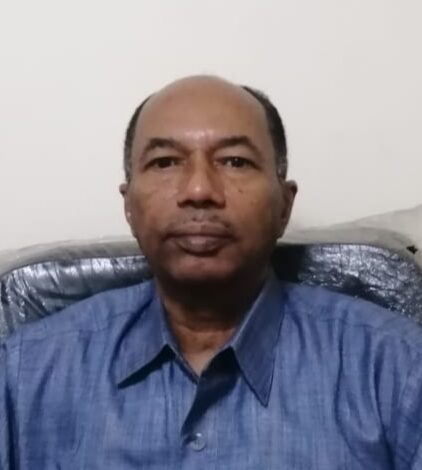Economic Expert Recommends Cooperation with Russia and China to Avoid U.S. Sanctions

Economic expert Dr. Adel Al-Faki asserted that the U.S. allegation of the Sudanese army using banned chemical gases is a baseless and false claim. In an article, he stated that the primary goal of this allegation is to block international institutions from cooperating with Sudan, emphasizing that the United States and Western countries do not accept any Sudanese government unless it is submissive to them and aligned with their policies.
Al-Faki believes that the solution to overcoming these sanctions lies in turning eastward and forming strategic cooperation with Russia and China.
The U.S. administration announced its intention to impose sanctions on Sudan over allegations that the Sudanese army used chemical weapons.
Adel Al-Faki noted that U.S. sanctions on Sudan are a habitual approach of successive American administrations, aiming to control any political developments in Sudan through the tool of sanctions, which falls under the concept of soft power.
He continued, “Since 1988, the U.S. administration has imposed comprehensive sanctions on Sudan, which were partially lifted in 2017 and completely lifted on May 20, 2021. However, following the change in the political structure led by President Al-Burhan’s correctional move in October 2021, the U.S. Department of State announced on October 26, 2021, the suspension of U.S. aid to Sudan, citing (the arrest of civilian officials by the military) as the reason.” It was decided to suspend emergency aid worth $700 million.
International financial institutions, including the IMF and World Bank, followed the U.S. lead, declaring that they would not provide loans or grants to Sudan unless a civilian-led government is in place.
Al-Faki clarified that these international financial organizations took similar positions due to the U.S.’s voting power within them. As a result, Sudan has been deprived of crucial economic opportunities due to this blatant interference in its internal affairs. This included halting Sudan’s external debt relief process under the HIPC initiative, despite Sudan meeting all the conditions for eligibility.
Moreover, loans and international aid coordinated by the International Finance Corporation were deliberately halted. These included $780 million for energy sector reforms, $575 million for irrigation, agriculture, and water harvesting (especially in Kordofan, Darfur, and Eastern Sudan), $300 million for health and education, $100 million for entrepreneurship projects (targeting women and youth), $820 million for the “Thamarat” social support program, and $100 million for a COVID-19 prevention program for the Ministry of Health.
Al-Faki asserted that the suspension of debt relief and international aid by U.S.-controlled Bretton Woods institutions is part of the soft power weapon the U.S. and its allies are currently using against Sudan and its military.



